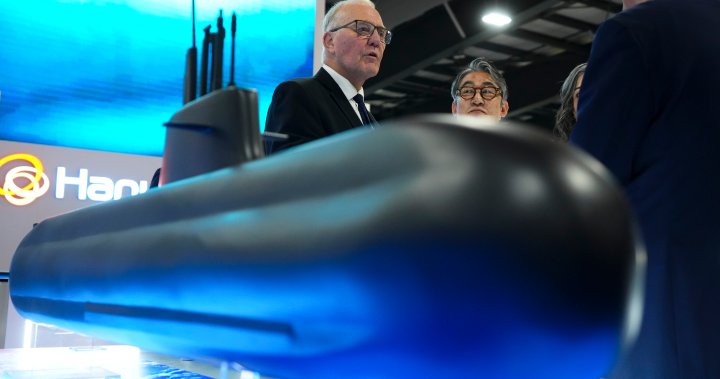Canadian and Chinese defence ministers met for the first time in 11 years at an international security conference in Singapore. Canada’s Bill Blair met with China’s Admiral Dong Jun, expressing Canada’s concerns about Beijing’s foreign interference, economic support for Russia, and military exercises in Taiwan. The U.S. Defense Secretary also raised concerns about China’s actions in Taiwan during a meeting with Dong. Canada has been participating in U.S.-led exercises in the Taiwan Strait to emphasize freedom of navigation, despite reports of aggressive actions by China during these exercises. Canada has pledged to send navy vessels to the region as part of its Indo-Pacific strategy, and is committed to engaging with partners in the region for stability and security.
There have been signs of improving relations between Canada and China in recent high-level discussions. Foreign Affairs Minister Mélanie Joly spoke with her Chinese counterpart, Wang Yi, and met with him in person. Additionally, a Canadian military official indicated that Canada was looking to re-establish relationships with China’s defence attaché. The strained relations between the two countries were exacerbated by the arrest of Huawei executive Meng Wanzhou in Vancouver, which led to the detention of Canadians Michael Kovrig and Michael Spavor in China. However, Meng was released in 2021, and Kovrig and Spavor returned to Canada. The strained relations were further affected by reports of Chinese meddling in Canada’s federal elections, resulting in a public inquiry that found no significant impact on the election outcomes.
Despite the history of tensions, the meeting between the Canadian and Chinese defence ministers suggests a willingness to re-establish communication and improve relations. Canada’s participation in the U.S.-led exercises in the Taiwan Strait underscores its commitment to freedom of navigation in the region. The pledge to send navy vessels to the Indo-Pacific region and engage with allies for stability and security demonstrates Canada’s strategic approach to regional cooperation. The ongoing dialogue between Canada and China at various levels indicates a positive trajectory in their relationship, following years of strain due to high-profile incidents like the arrest of Meng Wanzhou and the detention of Canadian citizens in China.
The U.S. Defense Secretary also raised concerns about China’s actions in Taiwan during his meeting with the Chinese defence minister, highlighting the importance of addressing regional security issues through diplomatic channels. The tension between China and Taiwan, as well as China’s military activities in the region, have been sources of concern for multiple countries, including Canada and the United States. The commitment to dialogue and engagement with partners in the Indo-Pacific region reflects a collaborative approach to addressing security challenges and maintaining stability in the region. The willingness of Canada and China to participate in discussions and work towards re-establishing communication channels signals a positive development in their relationship after years of strained ties.
Overall, the meeting between the Canadian and Chinese defence ministers at the international security conference in Singapore represents a significant step towards re-establishing communication and improving relations between the two countries. The discussions around regional security issues, including China’s actions in Taiwan, highlight the importance of diplomatic engagement in addressing challenges and maintaining stability in the Indo-Pacific region. The ongoing dialogue between Canada and China at various levels, as well as Canada’s commitment to participating in exercises and sending navy vessels to the region, demonstrate a strategic approach to regional cooperation and security. Despite past tensions and high-profile incidents, the recent high-level discussions and positive trajectory in the relationship suggest a willingness to move towards a more constructive and collaborative partnership in the future.


